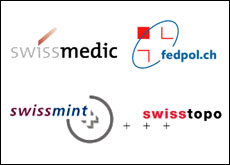
Language regions challenge spread of English

Swiss President Joseph Deiss has welcomed the idea of a national law on languages to stem the spread of English in the country.
He was speaking after meeting representatives from all four of Switzerland’s linguistic regions who denounced the increasing use of English within the federal administration.
The delegation handed over documents to the president showing the extent to which the English language was invading the administration.
“The president agreed with us and said he was concerned that more and more Swiss don’t know their own language properly,” said Jean-Marie Vodoz, the representative from French-speaking Switzerland.
Deiss said he was in favour of legislation limiting the use of English, but admitted that the drafting of any new law was out of his hands.
The government scrapped legislation earlier this year aimed at protecting the four national languages – Romansh is not an official language – claiming it would cost too much.
English names
Campaigners say the use of names and words in the three official languages – French, German and Italian – should be a priority.
Didier Berberat, a Social Democrat parliamentarian, recently asked the government to ban the use of English names for federal agencies.
The Swiss Agency for Therapeutic Products has, for example, gone by the name of “Swissmedic” for several years.
Some parliamentarians have also argued that the use of English can be confusing and that it may not be immediately clear whether Swissmint manufactures coins or sweets.
Berberat said his aim was to highlight the need to defend Swiss cultural values and ensure that priority was given to the country’s official languages.
The government has promised to consider his request.
National cohesion
But those who defend Switzerland’s national languages say the rot has spread far beyond the federal administration.
While many names may seem familiar to English speakers, with phone books known as “directories” and railway stations becoming “rail cities”, Vodoz says the use of these words threatens national cohesion.
“Using English all the time does away with an old tradition of translating in Switzerland,” he added. “Translations have been a link between language regions: if they disappear, the regions will ignore each other.”
Flavio Zanetti, the representative for the Italian-speaking part of the country, warned that Switzerland’s culture was at risk if English continued its progress.
“We could lose our multilingual identity, which is a vital element of our country’s make-up,” he added.
Earlier this year, the cantonal education directors decided that all primary schools must teach at least two foreign languages – including English – from 2012.
Most German-speaking cantons have said they will start teaching English before the national language, French.
swissinfo with agencies
Switzerland has four national languages: German, French, Italian and Romansh.
The first three are also considered official languages.
64% of the population speak German, 20% speak French, 6.6% Italian and 0.5% Romansh.
All other languages, including English, represent a total of less than 10%.

In compliance with the JTI standards
More: SWI swissinfo.ch certified by the Journalism Trust Initiative


























You can find an overview of ongoing debates with our journalists here . Please join us!
If you want to start a conversation about a topic raised in this article or want to report factual errors, email us at english@swissinfo.ch.